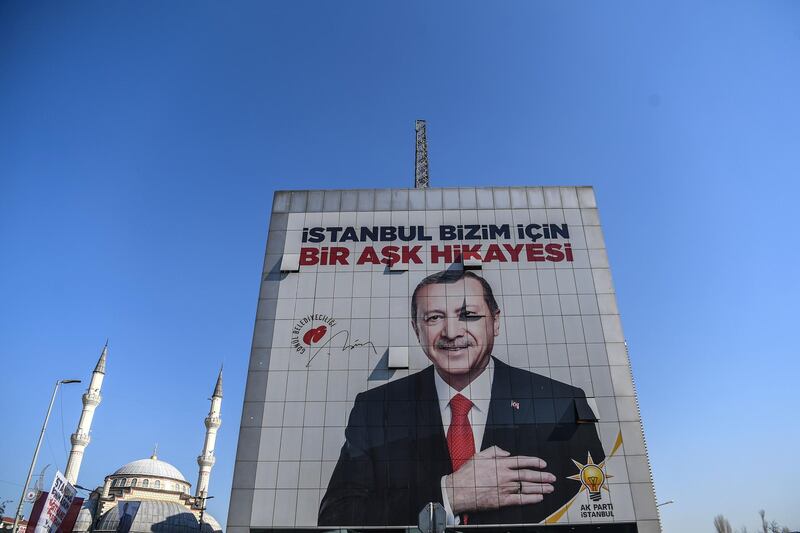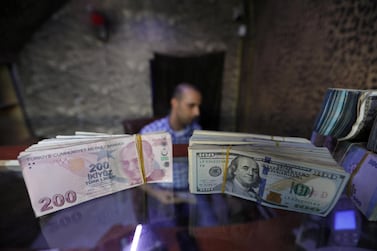Turkey is to hold local elections on Sunday (March 31), with citizens voting for mayors and council members for their city or district. While these sort of elections wouldn’t usually carry much significance at an international level, this time the vote comes amid strong polarisation, a recession and cross-border military operations.
The outcome could potentially shape Turkey’s long-term foreign policy agenda, meaning they are being hotly contested by both the ruling Justice and Development Party (AKP) and an alliance of opposition parties.
What is at stake for Turkey in Sunday’s local elections?
These local elections are the first since Recep Tayyip Erdogan took over as the head of a new presidential system last year and they are being considered a sort of referendum on his impact since receiving sweeping new powers. Yet the country is now undergoing an economic downturn, with the lira crashing in 2018, unemployment at a nine-year high and rising inflation leaving some food staples jumping in price by as much as 81 per cent. Turkey has had five major elections in the past five years, but the next is not scheduled until 2023. His party's performance will shape the narrative of domestic politics for the coming years, especially when it comes to the stance on Kurdish nationalism.
What is the importance of the elections internationally?
Regional and international affairs have dominated the agenda due in part to Turkey's military actions in Iraq and Syria as well as to deflect from domestic economic concerns. Mr Erdogan's party has made an alliance with the hardline nationalist Nationalist Action Party (MHP), meaning they may take an even tougher stance on the US's partnership with the Peoples' Protection Units (YPG) in Syria. Turkey sees the YPG as having links with the outlawed Kurdistan Workers' Party (PKK), who have waged a decades-long insurgency against Ankara. It may lead to the country also seeking closer relations with Russia, China, and Iran. If the alliance does not perform well, however, Mr Erdogan may take a softer stance on the Kurds and push a less nationalist agenda.
Who is in the running?
There are two main alliances made up of the country’s strongest parties. The People’s Alliance is made up of Mr Erdogan’s AKP and the MHP, who staunchly oppose political engagement with the Kurds. The main opposition Republican People’s Party (CHP) have joined forces with the conservative Good Party (IYI) to form the Nation Alliance. Both will field joint candidates in many of Turkey’s roughly 1,000 electoral districts. The third biggest party in parliament, the pro-Kurdish Peoples’ Democracy Party (HDP), have not joined an alliance. Their mayors and politicians have been removed or jailed in Turkey’s majority-Kurdish south-east amid allegations that they are aligned with the PKK. Their decision to not join an alliance has been viewed as a move to support the Nation Alliance against its government rival.
What are the important districts?
Due to its economic and geographic significance, Istanbul is the most important metropolitan municipality and that is reflected in Mr Erdogan’s choice to run former and final prime minister Binali Yildirim, who oversaw the country’s transition to a presidential system, which also abolished his role. Ankara is one of the most contested races, with the president himself holding several election rallies in the capital, even opening a long-awaited theme park that he promised will be a “symbol of pride for Turkey”.
Is Mr Erdogan confident his party will perform well?
Employing some headline-grabbing pre-election tactics, it doesn't seem that way. He has called the election a "matter of survival" and used the Christchurch massacres to garner support from his Islamist and nationalist base. The president caused international outrage when he repeatedly showed a video from the Christchurch mosque massacres during his campaign rallies and, as with all elections in Turkey, there is fear that there will be vote-rigging. Mr Erdogan's rallies have been rife with fear-mongering and attacks on opponents, and often seen tactics to garner support have reared their head, such as a proposal to convert tourist site the Hagia Sophia, a museum since 1935, into a mosque.







